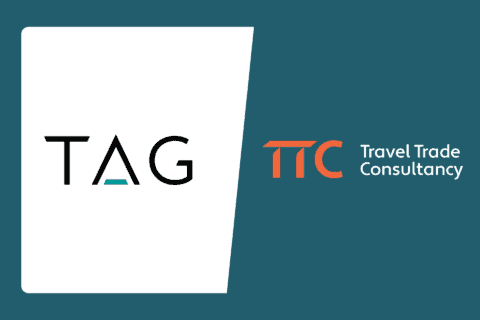Update: We have recently updated our Brexit guidance as further details have been announced. You can read our new blog post here.
It may have been pushed to the back of our minds by a worldwide pandemic, but sadly, Brexit and its many related challenges have not gone away.
The UK officially left the European Union (EU) on 31 January 2020, entering a transition period which is scheduled to last until 31 December 2020. Both sides are currently in the process of negotiating a new trading relationship.
Whatever the outcome of the next few months’ negotiations, there will be challenges for the travel industry, and your business may have to adapt. Here are six key areas that are likely to be impacted:
1 – Employees
Worker’s rights will feature heavily in any trade deal, and if you employ EU nationals in the UK, or you post UK workers to EU countries, new rules are likely to affect you.
We understand many EU member states have put processes in place to allow UK citizens to continue to work if no trade deal is agreed. However, there may be restrictions on the length of time workers would be allowed to stay in an EU country.
Furthermore, any new agreements for workers’ rights are only likely to apply to those living and working in the country before Brexit, which may present issues for seasonal workers.
Similarly, the recent UK Immigration Bill introduces a series of restrictions on companies rights to employ non-UK workers. In particular, the salary threshold of £25,600 is likely to capture a higher proportion of roles in the travel sector compared to many others and could lead to a shortage of suitable candidates.
2 – VAT
The Tour Operator Margin Scheme (TOMS) is an EU-wide simplification measure that means EU tour operators don’t have to register for VAT in every member state in which they operate.
We understand that any trade deal would likely preserve the current system. However, in the event of a no-deal Brexit, HMRC has proposed to change the rules, making travel services to all destinations outside the UK (including the EU) zero-rated. The good news is that only the margin on UK travel services will be subject to VAT, which could result in significant savings for many outbound tour operators.
However, EU member states will likely require UK operators to separately register for VAT in each territory in which they operate, which would present a significant administrative burden for many travel companies.
3 – Key information
Under the Package Travel Regulations, package organisers must provide accurate information to customers on various matters including passports, visa requirements, healthcare support.
Passengers travelling after 1 January 2021 are likely to need at least six months remaining on their passport.
We understand UK travellers will still be allowed to visit EU countries for up to 90 days without a visa, but only if the UK continues to grant reciprocal rights to EU citizens visiting the UK.
Though unrelated to Brexit, from 2022 all visitors to the EU will need to complete an application through the EU Travel Information and Authorisation System (ETIAS) and pay a fee before entering the Schengen Area. This will even include citizens of countries with a visa-free travel agreement in place.
It is still unclear what arrangements will be in place for UK nationals should they need access to health care when in an EU country. If the EHIC card is no longer valid when we leave the EU, you will need to make sure you direct your customers to the correct advice.
You must ensure that you have systems in place to monitor any changes to these information requirements, and to inform your customers where necessary.
4 – Flights
In a post-Brexit world, airlines may need to ask for permission to fly into EU air space, and airlines based in the EU will have to do the same when flying into the UK. This could present challenges if permission isn’t granted on time.
The current transition arrangements allow flights between the UK and the EU to continue as they were. What happens beyond 31 December 2020 is still being negotiated.
5 – Regulation and licensing
Under the current European regulatory framework for selling package holidays, companies who are established and compliant with the rules of one EU member state can sell holidays in every other EU member state.
Non-EU companies must comply with the rules in each and every member state in which they sell holidays.
Once the UK falls outside of these rules, many companies are likely to require a change to their current licensing arrangements following the end of the transition period. For example:
- EU established firms wishing to sell flight-inclusive holidays in the UK from 1 January 2021 are likely to need to hold their own ATOL.
- UK established firms wishing to sell holidays in the EU will need to either create a new subsidiary place of establishment in an EU member state or register with the financial protection scheme of each member state in which they operate.
In addition, if you use insurance bonds to meet your financial protection obligations, then you should also check with your insurer or insurance broker that they can continue to issue valid bonds following the end of the transition period.
6 – Foreign currency
The Pound Sterling has been on a volatile rollercoaster ride ever since the UK voted to leave the EU in 2016. Its value has fluctuated dramatically with each twist and turn of the withdrawal process, and it remains impossible to predict.
As the trade negotiations proceed, we expect this pattern to continue. Travel companies must have a robust strategy in place for managing their foreign currency risk.
There are still many unanswerable questions at this stage. Through the continuing negotiations, we’ll be providing updates, analysis and insight on our website and through our social media channels. If you need support in the meantime, please get in touch.
If you enjoyed this post, why not sign-up to our newsletter? Get our latest blog posts, industry updates and exclusive content. Join the mailing list below.
Guidance on Brexit is continually being updated as we progress through the transition period. We'll be updating our posts regularly to ensure our analysis and advice remains as accurate and useful as possible. To receive the very latest information as we release it follow us on LinkedIn. If you have any questions in the meantime, please get in touch.



